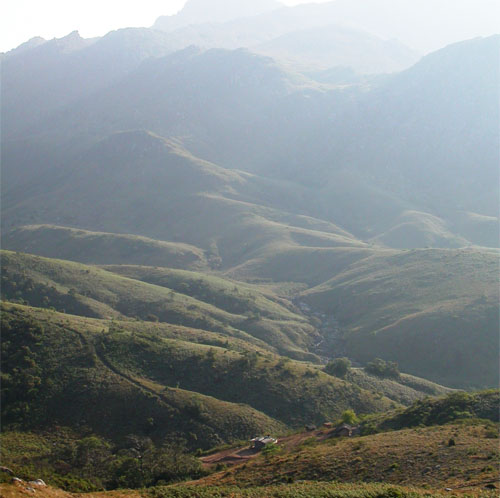LLOYD CHITSULO, Correspondent
It’s exactly 13:53 and its scorching hot at Fort Lister in Phalombe, one of the routes at the base of the country’s magnificent Mulanje Mountain.
Excitement catches my mind as I get prepared to go on the 4 hour journey to one of the peak, Sombani, part of the Mountain, to get a glimpse of one of the country’s wonders it boasts of both locally and abroad.
As I unpack my camera to capture my first time moments on such an amazing hiking experience, and my 2 litre of bottled water, fear grips my mind as the scary spiritual beliefs that are associated with the mountain flashes in my mind.
Nevertheless, this does not hold me back. My mind is already made up; I have to enjoy hiking one of the highest peak located in South Central Africa and boast of the once in a lifetime experience to my family back in Blantyre.
Mulanje Mountain is one of the very best and most popular Mountains that the country will forever boast of. It gives tourists a breathtaking experiencing, one that attracts them to have a thirst for coming back year in year out.
In his book titled Hiking Guide to Mount Mulanje, Drew Corbyn describes Mulanje Mountain as a hiker’s paradise-enchanting and challenging equal measure, the rocky peaks, high grasslands, deep gorges and powerful rivers-all transporting the visitor into another world.
Located 60 kilometres south east of the commercial city of Blantyre, the mountain boasts of beautiful scenery while hiking as it gives a beautiful aerial view of the base of the mountain and distant places.
Using the Fort Lister route, one is also able to see the beautiful Michesi Mountain that is adjacent to it, which keeps getting higher and higher the more you keep going and at some point, disappears into the clouds.
There is no need to worry with luggage when hiking as porters from the surrounding villages are readily available to help tourists. The experienced guides also take you through an amazing time, telling you how best you can navigate the routes.
Accommodation is another exciting component that makes up the mountain, with 10 huts to cater for a good number of hikers.
Programmes Officer responsible for environmental education and communications at the Mulanje Mountain Conservation Trust (MMCT) Kondwani Chamwala, says it is imperative to take an exercise before and after hiking as it helps in keeping your body fit.
He says, “Before hiking, exercise helps in getting the body ready, and after hiking, it helps to keep the body strong enough.”
Whilst hiking, one is amazed by the unique cedar plantations that make up part of the mountain.
Cedar was declared a national tree in 1984 and it is one of the rare tree species that the country takes pride in. According to Chamwala, the tree naturally occurs on Mount Mulanje and it is very rare to be found elsewhere.
There is a high probability to meet with illegal loggers carrying cedar cut from the mountain that is being depleted at an alarming rate.
Stamps of both old and fresh cut cedar trees can be seen along the trails and on the base of some parts of the mountain. Individuals deplete the rare tree species and sell it for use by people who use it as door frames and other uses.
But Chamwala says there are several initiatives that MMCT is currently implementing to make sure that the tree is being conserved.
He says, “At the moment, we are working hand in hand with government and other organizations where we are putting in place numerous initiatives that are playing an integral role in its conservation.
“The Trust is also supporting the taking care of the cedar trees by helping in the construction of fire towers where guards can easily see where forest fires are emerging from so that we prevent its destruction as well as fire breaks.”
His sentiments are also echoed by Forestry Plantations Manager Ajibu Liwasa, who says they intensify patrols to apprehend culprits found depleting the cedar trees.
Liwasa says, “As forestry department with assistance from several stakeholders mainly Mulanje Mountain Conservation Trust, we have been conducting mountain patrols whereby our forest guards and patrollers plus security officers have been apprehending suspects who are sent to police for further action.”
Liwasa further says that apart from such initiatives, they have also been holding sensitization meetings and making by-laws that are helping in curbing the malpractice.
Through such levels of depletion, the country has lost millions of kwacha as the rare tree species is highly valued with its uniqueness. Continued depletion is also likely to make the mountain loose its beautiful tourist attraction. A case of the magnificent Mountain with its unique cedar plantations.

